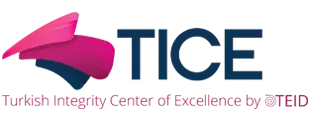Project
The world’s 17th largest economy, Turkey is a geostrategic country with high economic growth potential. While the trade center between east and west, north and south in its region is a promising land for Foreign Direct Investment (FDI), it made an urgent call for for activities aimed at ensuring equal conditions, as well as its work on regulatory / business environment hazards, integrity, compliance, responsibility, and transparency against corruption. A recent investigation of the trade and investment potential in Turkey conducted by a recent EU commission has revealed that some of the foreign investors in Turkey are victims of job security due to regulatory issues [1].
Evidence from around the world confirms that corruption hinders economic development, reduces social policies, and directs investment to infrastructure, institutions, and services. Corruption therefore reflects an economy and democracy that negatively affects human development and human security, and a lack of human rights and good governance. Therefore, in an increasingly globalized world order, it is not surprising that there is a continuous demand from international societies to prevent further damage to public institutions and exacerbation of poverty, to reduce threats to sustainable human development, and to avoid possible inter-sectoral effects of dispersal rather than multilateral institutions, human rights organizations, and regional security blocs in order to prevent corruption.
It is clear that the fight against corruption can only be effective by involving the country’s private businesses. In this context, an effective anti-corruption strategy requires a detailed understanding of the integrity risks of the market and the local culture of the business, the administration of a country, and the economic and political environment.
In this regard, businesses can also increase their demands and belonging to anti-corruption initiatives. A necessary holistic approach, well-trained professionals, consistent data on evaluations, and benchmarking can be taken as a basis for verifiable results.
Effective anti-corruption strategies should include adequate methods to address all possible sources and types of resistance. Therefore, a comprehensive “change management” process should be developed for the successful implementation of anti-corruption strategies.
Different corruption measurement tools emphasize that the public has identified corruption as an ongoing and widespread problem in the country. Along with the international requirements of Turkey, such as OECD, throughout the EU membership process, as well as the UNCAC assessment process are instrumental in underlining the importance of progress in the field of anti-corruption.
According to investors, Turkey has a stable economy, a qualified and competitive workforce, is strategically located, considered Europe’s energy corridor and terminal, a logistics hub between East and West, provides low taxes and incentives, has a customs union with the EU since 1996, and is a country with a large domestic market. As a result of corruption, the investment environment and unfair competition are seen as the only obstacles.
In most of the data obtained from studies of both academic as well as external representatives, it is noted that Turkey has important legal and institutional ways to fight corruption. The main problem is the efficiency of existing tools and the level accepted and adopted by businesses.
In this context, TICE tackles possible and necessary measures that need to be considered in order to effectively manage integrity risks and fight corruption in the private sector, while increasing its potential to reach sustainable international standards.
“Turkish Integrity Center of Excellence, is supported by Siemens Integrity Initiative”
